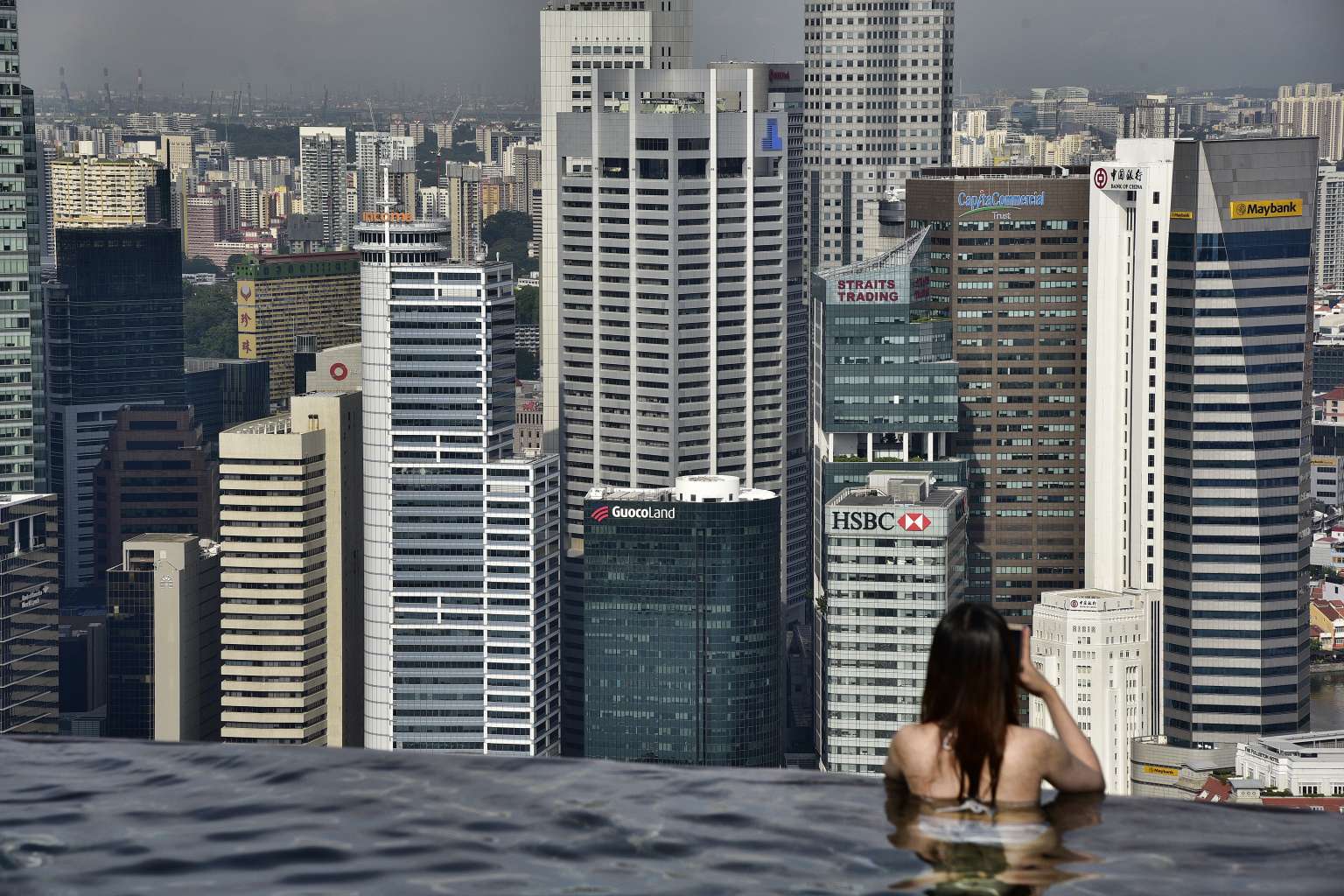Singapore is getting Fed-ready by easing property curbs
Sign up now: Get ST's newsletters delivered to your inbox

A view of Singapore’s Central Business District at Marina Bay Sands.
ST PHOTO: DESMOND WEE
Follow topic:
SINGAPORE (BLOOMBERG GADFLY) - Global asset markets may not be taking Janet Yellen's warnings on rate increases too seriously, but Singapore got Fed-ready on Friday (March 10) with the surprise announcement that the city is easing property curbs.
Starting in 2009, those restrictions on buying, selling and financing real estate came in waves of increasing severity after Singapore found its open economy inundated with cheap money printed by Western central banks. Seven years later, it seems the so-called "macroprudential" measures have already done their job - probably a bit too well.
Unlike in Hong Kong, where a glut of Chinese liquidity blunted the edge of cooling measures and kept real estate on the boil, 13 consecutive quarters of drops in Singapore home prices were causing a different problem. The island's three home-grown banks were starting to look threatened, just as they struggled with outsized losses on loans to domestic rig-builders and corporate borrowers in Singapore, Hong Kong and China.
Housing loans comprise almost 15 per cent of bad debt at Oversea-Chinese Banking Corp, and make up a little less than 19 per cent of soured loans at United Overseas Bank Ltd. Property is the collateral in 37 per cent of secured nonperforming assets reported by DBS Group Holdings.
Friday's measures won't open the floodgates to speculators. For one thing, there's no relaxation of buyer's stamp duty, which at 15 per cent is prohibitive for foreigners.
And flipping is still discouraged: Sales within a year of purchase will invite a 12 per cent seller's stamp duty, down from 16 per cent. Even so, shares of large builders such as City Developments, Capitaland and UOL Group rose between 2 per cent and 6 per cent after the announcement.
Bank stocks didn't do much, because loan-to-value limits on mortgages remain in place, and a cap on a borrower's debt-to-income ratio is being relaxed only slightly. Now that the cycle has turned, there may be more substantial easing on the way.
Ms Yellen's Federal Reserve may set the pace for those tweaks. Singapore's interbank interest rate, a benchmark for mortgage costs, is still only 0.94 per cent. As rates increase in the US, what for now looks like a soft landing in the island's property market could end up being bumpy. By buying a bit of insurance against a jolt, Singapore is signaling that it is ready for a hawkish Fed.
(This column does not necessarily reflect the opinion of Bloomberg LP and its owners.)

